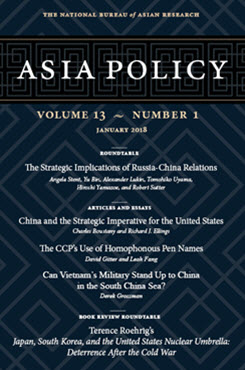China and the Strategic Imperative for the United States
This essay examines the implications of China’s rise and calls on the U.S. to address the domestic bases for national power and to reassume a leadership role in Asia by executing a grand strategy that is fully cognizant of political, historical, economic, and strategic realities.
EXECUTIVE SUMMARY
MAIN ARGUMENT
The U.S. has deep and long-standing interests in the strategically complex Indo-Pacific region. Now, however, Beijing’s multi-decade strategy is bearing fruit as Chinese power and interests are beginning to predominate there. U.S. regional interests and leadership are challenged, and U.S. economic and security policies relevant to Asia are incoherent. Washington must craft effective policies that coordinate economic and diplomatic instruments of power with military instruments of power, and these policies must be executed in a manner consistent with historical yet achievable strategic imperatives.
POLICY IMPLICATIONS
- Xi Jinping is committed to consolidating his and the Chinese Communist Party’s grip on Chinese society, basing much of his and the party’s legitimacy on nationalism. China appears determined to replace the U.S. as the dominant regional force and compete for global hegemony.
- The U.S. must address the threats to its economy and at the same time remain engaged in crafting the rules of the international economic order. It should improve as needed and consider rejoining the Trans-Pacific Partnership to accelerate economic growth and coordination among coalition members. The U.S. should seek opportunities to strengthen liberal economic behavior in the region.
- The U.S. must develop an appropriate, well-resourced military strategy for the Indo-Pacific and deploy the required weapons and related systems to execute it.
- The U.S. must build coalitions to keep a stable balance of power, as well as reform and lead the institutions that play critical roles in the post–World War II economic and political order.
- The relationship between China and the U.S., together with the actions and strategies of each power, will be the most important determinants of the 21st-century world order. The U.S. has the capacity to rise to the challenge, but it must make serious assessments of what is needed and act accordingly and expeditiously.
About Asia Policy
Asia Policy is a peer-reviewed scholarly journal presenting policy-relevant academic research on the Asia-Pacific that draws clear and concise conclusions useful to today’s policymakers. Asia Policy is published quarterly in January, April, July, and October and accepts submissions on a rolling basis. Learn more


